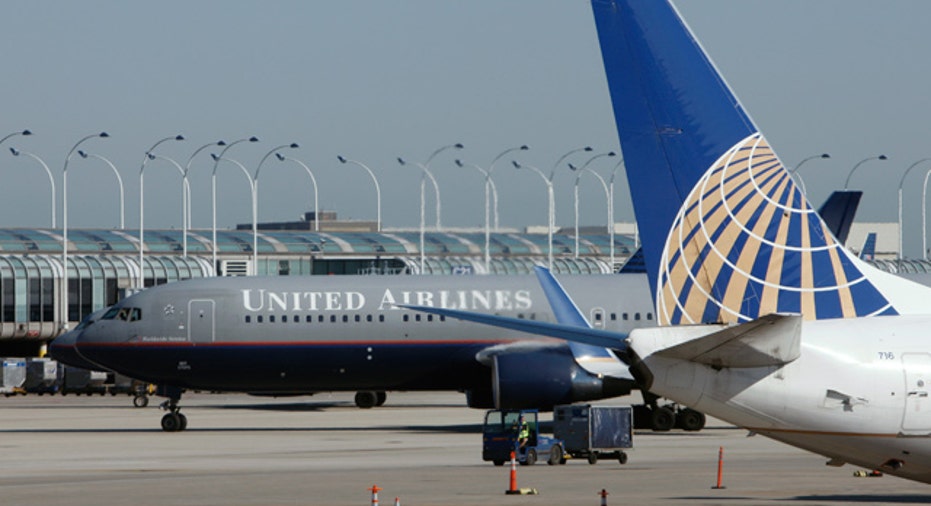Globetrotting Tips After a Travel Warning

If you're already an anxious traveler fearful of flying or of foreign places, news of a terrorist threat may be the tipping point that causes you to cancel your plans. When the U.S. Department of State closes embassies in any country, travelers with plans to visit them have to assess personal risk and decide whether to keep their itineraries intact.
The Department of State issues travel warnings on its website, Travel.state.gov, for countries where it believes Americans are in danger. It also posts travel alerts that describe less dangerous, but still serious, potential problems for visitors.
"It's important to understand the specifics of any warning or alert from the U.S. government before you decide to change your plans," says Rita Anya Nara, author of "The Anxious Traveler: How to Overcome Your Fear to Travel the World."
"In general, I recommend that people keep their plans and work through any anxiety about a travel alert or terrorist attack," Nara says.
Jean Newman Glock, director of global relations for Connoisseur Travel in Washington, D.C., says if you're traveling for business, you may not have a choice about where you're going and when. Tourists have more flexibility with their travel plans.
"Read the State Department alerts carefully, and when the threat level rises to a travel warning, then don't travel to that country," Glock says. "If you're already there, make arrangements to leave."
For example, travel in Egypt was relatively safe until the last few months, and now Glock doesn't recommend going there.
Marybeth Bond, founder of GutsyTraveler.com, suggests avoiding countries where there's civil unrest, although she advises you to research the situation to see if some locations within the country are safe.
In addition to relying on the State Department, Bond recommends doing a Google search of recent news articles about your destination and reading the travelers' forum at LonelyPlanet.com/thorntree to gather information.
"Lonely Planet travelers are up-to-date on different places, so you can either post a question about your destination or just read the comments that are organized by location," Bond says.
Glock says you should rely on the U.S. government, news sources or a travel consultant to decide where to travel and where to avoid rather than asking a tour operator or a hotel.
"They'll tell you an area is safe even if it isn't because they need to book business," she says.
Safety tips before you travel
In addition to being an informed traveler, Glock recommends registering with the State Department's Smart Traveler Enrollment Program at Step.state.gov/step, which lets each embassy know which Americans are in the country, where they're staying and how to contact them. Glock was in Cairo during the Sept. 11, 2012, attack on the Benghazi diplomatic mission in Libya and says it gave her peace of mind to know the embassy knew where she was staying.
Nara says that after you register, you'll get email updates and tips about places to avoid and what to watch for. "If there's a specific (terrorist) threat, you'll get as much detail as they can provide," she says.
Glock suggests taking phone numbers with you for your airline and the embassy, found at USEmbassy.gov, so you're prepared in case an emergency occurs. Bond recommends bringing two credit cards and the phone numbers of your credit card companies so you can call them if you need emergency funds to leave the country.
Nara says to plan your trip in a way that lowers the risk of getting caught in a terrorist attack. "You can take less popular routes through lower-profile cities, such as flying from San Francisco to a city in the Midwest for a layover rather than directly to New York," she says.
Nara's going to Turkey soon and booked her trip through Toronto rather than London or New York. Although traveling this way can take more time, it often costs less and may be safer.
Staying safe abroad
Once you reach your destination, travel experts suggest you maintain a low profile and avoid wearing loud or provocative clothing.
If you're traveling on business, minimize the time spent in high-profile tourist areas that could be terrorist targets. "You should also stay away from the American embassy if you don't have any specific business there," Nara says.
She recommends avoiding rail stations and public transportation in areas under a travel warning.
You should beware of illegal cabs and know the rules about cabs where you travel. "If you can afford it, take a private car instead of a cab," Glock says.
Be aware of protests so you can avoid them. Glock says many of the most violent demonstrations in Muslim countries take place Friday evenings or Saturdays after prayers.
"If you're traveling in a Muslim country where there's political unrest, stay away from the large bazaars where people gather," Glock says.
Bond also recommends avoiding large crowds and staying away from demonstrations. She suggests switching hotels if you're staying in an area where there are protests.
Glock says if a country erupts with demonstrations or civil unrest while you're visiting, you shouldn't follow your instinct to rush to the airport.
"You're better off staying in place at your hotel until you have a flight booked and you know that the airport will stay open," she says. "Hotels work very hard to protect their customers and the staff will help you figure out what to do along with the U.S. embassy."
While no one wants to travel when there's a terrorist threat, staying informed and vigilant helps minimize your risk.



















